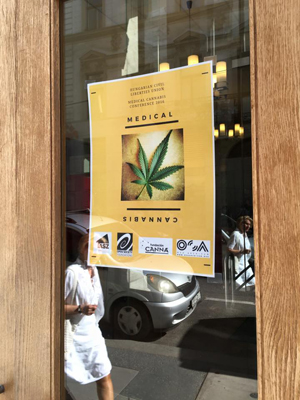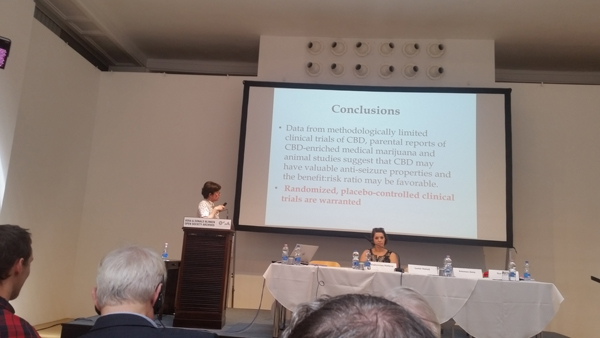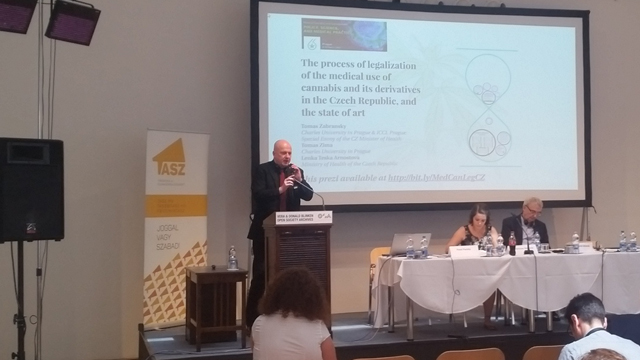Leading national and international experts and activists discussed barriers and opportunities at the first conference on medical cannabis in Hungary.
 Professor Lumir Hanus is an analytic chemist, and a leading authority in the field of cannabis research. He was invited to Budapest by the Hungarian Civil Liberties Union to talk about the long history of cannabis use in medicine – from the dawn of human civilisation to the present day. He said one of the reasons why cannabis is so useful in medicine is that it contains 144 active compounds (cannabinoids) that are not present in any other known plants, with two types of receptors in the human body to which these cannabinoids connect. These receptors are distributed very broadly in the body, and thus can influence several diseases. Professor Hanus works with Professor Mechoulam at the Hebrew University in Jerusalem, the researcher who discovered THC, the best known psychoactive cannabinoid. He said there is a long way to go before we can properly understand the intricate relationships between the various strains of cannabis and their effects. One of the barriers to research is illegality.
Professor Lumir Hanus is an analytic chemist, and a leading authority in the field of cannabis research. He was invited to Budapest by the Hungarian Civil Liberties Union to talk about the long history of cannabis use in medicine – from the dawn of human civilisation to the present day. He said one of the reasons why cannabis is so useful in medicine is that it contains 144 active compounds (cannabinoids) that are not present in any other known plants, with two types of receptors in the human body to which these cannabinoids connect. These receptors are distributed very broadly in the body, and thus can influence several diseases. Professor Hanus works with Professor Mechoulam at the Hebrew University in Jerusalem, the researcher who discovered THC, the best known psychoactive cannabinoid. He said there is a long way to go before we can properly understand the intricate relationships between the various strains of cannabis and their effects. One of the barriers to research is illegality. 

Peter Sarosi





